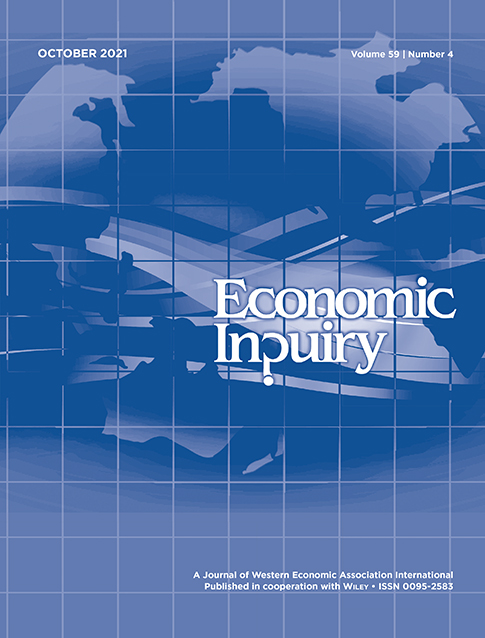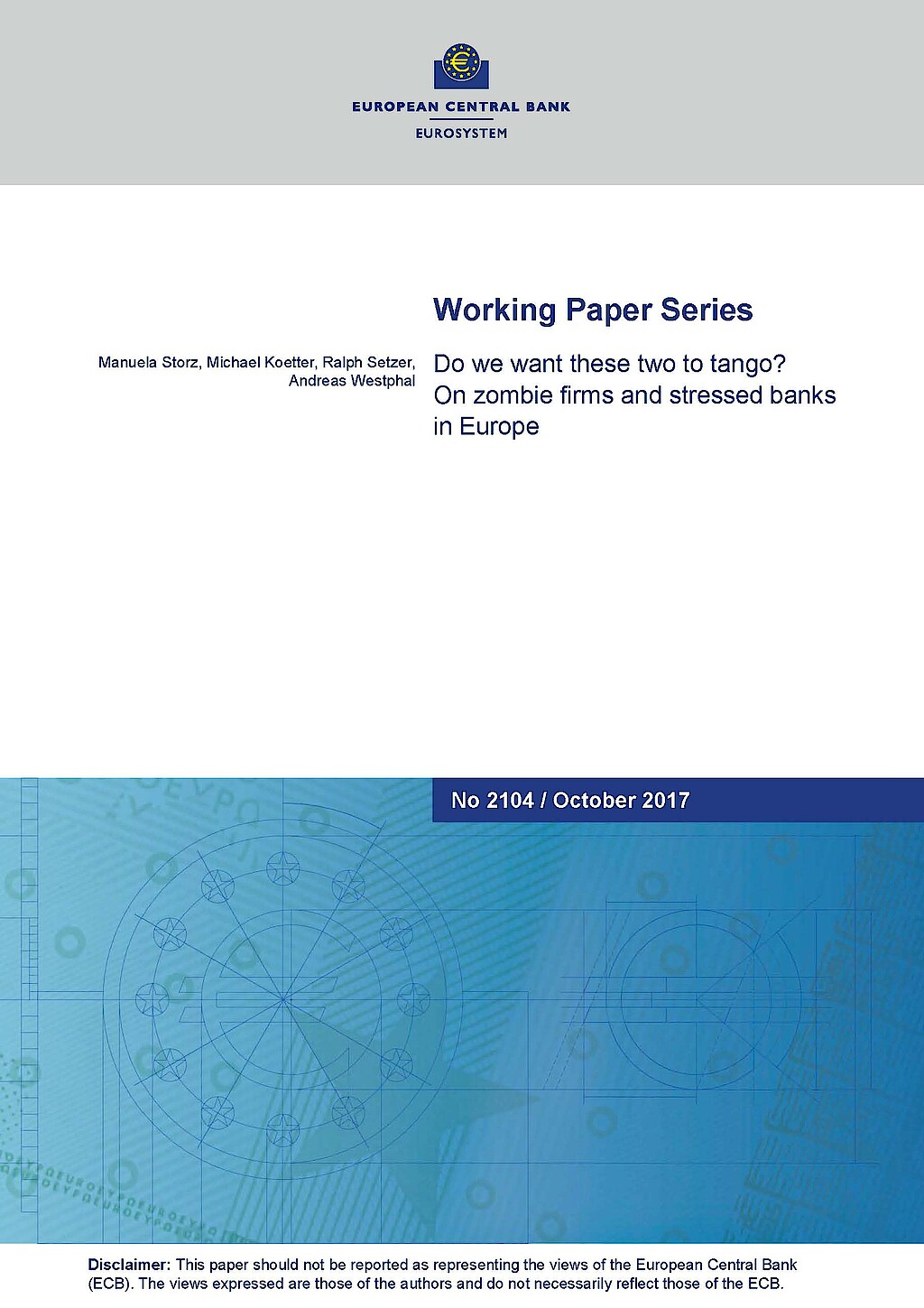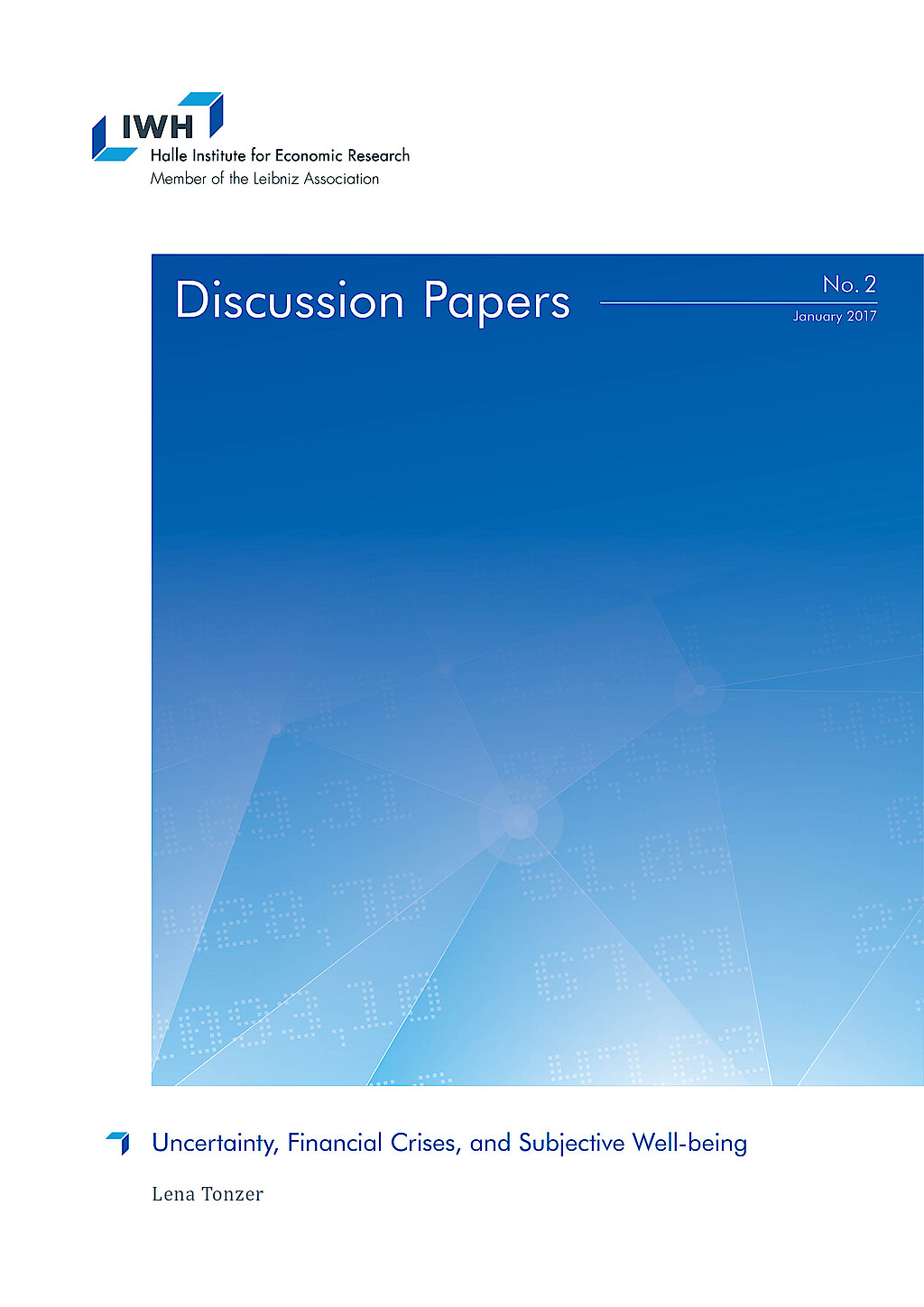Regulierung internationaler Finanzmärkte und Banken
Die Forschungsgruppe "Regulierung internationaler Finanzmärkte und Banken" analysiert internationale Kapitalströme und die Auswirkungen von Regulierungsänderungen auf die Finanzstabilität. Integrierte Finanzmärkte begünstigen eine effiziente Kapitalallokation und Risikoteilung – sie erleichtern aber auch die grenzüberschreitende Übertragung von Schocks.
Dementsprechend hat sich die Bankenregulierung in den letzten Jahren weiterentwickelt, wobei die vollen Auswirkungen dieser Reformen noch unklar sind. Daher konzentriert sich die Forschung der Gruppe auf zwei Bereiche:
Erstens werden die Haupttreiber internationaler Kapitalströme und deren Auswirkungen auf Finanzstabilität untersucht. Zeiten hoher Finanzintegration sind oft gefolgt von Krisen mit nachhaltigen realwirtschaftlichen Folgen. Ziel ist es, zu verstehen, wie eine stabile und effektive Kreditvergabe gewährleistet werden kann.
Zweitens wird untersucht, wie sich Veränderungen in der Regulierung und Aufsicht auf das grenzüberschreitende Bankgeschäft auswirken, insbesondere im Kontext der europäischen Integration. Dazu gehört die Bewertung des Trade-offs zwischen regulatorischer Harmonisierung und unbeabsichtigten Marktverzerrungen.
Zwei Datenprojekte tragen zu diesen Forschungsthemen bei: die International Banking Library, eine webbasierte Plattform für den Forschungsaustausch mit einem vierteljährlichen Newsletter, der mehr als 700 Abonnenten erreicht, und die Financial Markets Directives Database, die die Umsetzung der wichtigsten EU-Vorschriften im Bereich Finanzmärkte mit besonderem Schwerpunkt auf der Europäischen Bankenunion dokumentiert. Gemeinsam fördern sie eine evidenzbasierte Politikanalyse und erhöhen die Sichtbarkeit der Gruppe.
Forschungscluster
Wirtschaftliche Dynamik und StabilitätIhr Kontakt

- Abteilung Finanzmärkte
PROJEKTE
10.2021 ‐ 06.2025
Distributional Effects of Macroeconomic Policies in Europe (DEMAP)
Leibniz-Gemeinschaft
Das Projekt untersucht wie politische Maßnahmen auf dem Level der Europäischen Union, wie zum Beispiel der European Recovery Fund, die Ungleichheit zwischen Haushalten beeinflusst.
07.2017 ‐ 12.2022
Die politische Ökonomie der europäischen Bankenunion
Europäischer Sozialfonds (ESF)
Ursachen für nationale Unterschiede in der Umsetzung der Bankenunion und daraus resultierende Auswirkungen auf die Finanzstabilität.
01.2015 ‐ 12.2017
Dynamic Interactions between Banks and the Real Economy
Deutsche Forschungsgemeinschaft (DFG)
Referierte Publikationen

Completing the European Banking Union: Capital Cost Consequences for Credit Providers and Corporate Borrowers
in: European Economic Review, September 2022
Abstract
The bank recovery and resolution directive (BRRD) regulates the bail-in hierarchy to resolve distressed banks in the European Union (EU). Using the staggered BRRD implementation across 15 member states, we identify banks’ capital cost responses and subsequent pass-through to borrowers towards surprise elements due to national transposition details. Average bank capital costs increase heterogeneously across countries with strongest funding cost hikes observed for banks located in GIIPS and non-EMU countries. Only banks in core E(M)U countries that exhibit higher funding costs increase credit spreads for corporate borrowers and contract credit supply. Tighter credit conditions are only passed on to more levered and less profitable firms. On balance, the national implementation of BRRD appears to have strengthened financial system resilience without a pervasive hike in borrowing costs.

A Note of Caution on Quantifying Banks' Recapitalization Effects
in: Journal of Money, Credit and Banking, Nr. 4, 2022
Abstract
Unconventional monetary policy measures like asset purchase programs aim to reduce certain securities' yield and alter financial institutions' investment behavior. These measures increase the institutions' market value of securities and add to their equity positions. We show that the extent of this recapitalization effect crucially depends on the securities' accounting and valuation methods, country-level regulation, and maturity structure. We argue that future research needs to consider these factors when quantifying banks' recapitalization effects and consequent changes in banks' lending decisions to the real sector.

Technical Optimum of Bank Liquidity Creation
in: Revue Economique, Nr. 3, 2022
Abstract
This paper generates a technical optimum of bank liquidity creation benchmark by tracing an efficient frontier in liquidity creation (bank intermediation) and questions why some banks are more efficient than others in such activities. Evidence reveals that medium size banks are most correlated to efficient frontier. Small (large) banks—focused on traditional banking activities—are found to be the most (least) efficient in creating liquidity in on-balance sheet items whereas large banks—involved in non-traditional activities—are found to be most efficient in off-balance sheet liquidity creation. Additionally, the liquidity efficiency of small banks is more resilient during the 2007-2008 financial crisis relative to other banks.

Firm-specific Forecast Errors and Asymmetric Investment Propensity
in: Economic Inquiry, Nr. 2, 2022
Abstract
This paper analyzes how firm-specific forecast errors derived from survey data of German manufacturing firms over 2007–2011 relate to firms' investment propensity. Our findings reveal that asymmetries arise depending on the size and direction of the forecast error. The investment propensity declines if the realized situation is worse than expected. However, firms do not adjust investment if the realized situation is better than expected suggesting that the uncertainty component of the forecast error counteracts good surprises of unexpectedly favorable business conditions. This asymmetric mechanism can be one explanation behind slow recovery following crises.

Gender, Credit, and Firm Outcomes
in: Journal of Financial and Quantitative Analysis, Nr. 1, 2022
Abstract
Small and micro enterprises are usually majority-owned by entrepreneurs. Using a unique sample of loan applications from such firms, we study the role of owners’ gender in bank credit decisions and post-credit-decision firm outcomes. We find that, ceteris paribus, female entrepreneurs are more prudent loan applicants than are males, since they are less likely to apply for credit or to default after loan origination. The relatively more aggressive behavior of male applicants pays off, however, in terms of higher average firm performance after loan origination.
Arbeitspapiere

Do We Want These Two to Tango? On Zombie Firms and Stressed Banks in Europe
in: ECB Working Paper, 2017
Abstract
We show that the speed and type of corporate deleveraging depends on the interaction between corporate and financial sector health. Based on granular bank-firm data pertaining to small and medium-sized enterprises (SME) from five stressed and two non-stressed euro area economies, we show that “zombie” firms generally continued to lever up during the 2010–2014 period. Whereas relationships with stressed banks reduce SME leverage on average, we also show that zombie firms that are tied to weak banks in euro area periphery countries increase their indebtedness even further. Sustainable economic recovery therefore requires both: deleveraging of banks and firms.

Do We Want These Two to Tango? On Zombie Firms and Stressed Banks in Europe
in: IWH Discussion Papers, Nr. 13, 2017
Abstract
We show that the speed and type of corporate deleveraging depends on the interaction between corporate and financial sector health. Based on granular bank-firm data pertaining to small and medium-sized enterprises (SME) from five stressed and two non-stressed euro area economies, we show that “zombie” firms generally continued to lever up during the 2010–2014 period. Whereas relationships with stressed banks reduce SME leverage on average, we also show that zombie firms that are tied to weak banks in euro area periphery countries increase their indebtedness even further. Sustainable economic recovery therefore requires both: deleveraging of banks and firms.

Inside Asset Purchase Programs: The Effects of Unconventional Policy on Banking Competition
in: ECB Working Paper Series, Nr. 2017, 2017
Abstract
We test if unconventional monetary policy instruments influence the competitive conduct of banks. Between q2:2010 and q1:2012, the ECB absorbed Euro 218 billion worth of government securities from five EMU countries under the Securities Markets Programme (SMP). Using detailed security holdings data at the bank level, we show that banks exposed to this unexpected (loose) policy shock mildly gained local loan and deposit market shares. Shifts in market shares are driven by banks that increased SMP security holdings during the lifetime of the program and that hold the largest relative SMP portfolio shares. Holding other securities from periphery countries that were not part of the SMP amplifies the positive market share responses. Monopolistic rents approximated by Lerner indices are lower for SMP banks, suggesting a role of the SMP to re-distribute market power differentially, but not necessarily banking profits.

Uncertainty, Financial Crises, and Subjective Well-being
in: IWH Discussion Papers, Nr. 2, 2017
Abstract
This paper focuses on the effect of uncertainty as reflected by financial market variables on subjective well-being. The analysis is based on Eurobarometer surveys, covering 20 countries over the period from 2000 to 2013. Individuals report lower levels of life satisfaction in times of higher uncertainty approximated by stock market volatility. This effect is heterogeneous across respondents: The probability of being unsatisfied is higher for respondents who are older, less educated, and live in one of the GIIPS countries of the euro area. Furthermore, higher uncertainty in combination with a financial crisis increases the probability of reporting low values of life satisfaction.

To Separate or not to Separate Investment from Commercial Banking? An Empirical Analysis of Attention Distortion under Multiple Tasks
in: IWH Discussion Papers, Nr. 2, 2016
Abstract
In the wake of the 2008/2009 financial crisis, a number of policy reports (Vickers, Liikanen, Volcker) proposed to separate investment banking from commercial banking to increase financial stability. This paper empirically examines one theoretical justification for these proposals, namely attention distortion under multiple tasks as in Holmstrom and Milgrom (1991). Universal banks can be viewed as combining two different tasks (investment banking and commercial banking) in the same organization. We estimate pay-performance sensitivities for different segments within universal banks and for pure investment and commercial banks. We show that the pay-performance sensitivity is higher in investment banking than in commercial banking, no matter whether it is organized as part of a universal bank or in a separate institution. Next, the paper shows that relative pay-performance sensitivities of investment and commercial banking are negatively related to the quality of the loan portfolio in universal banks. Depending on the specification, we obtain a reduction in problem loans when investment banking is removed from commercial banks of up to 12 percent. We interpret the evidence to imply that the higher pay-performance sensitivity in investment banking directs the attention of managers away from commercial banking within universal banks, consistent with Holmstrom and Milgrom (1991). Separation of investment banking and commercial banking may indeed be associated with a reduction in risk in commercial banking.















